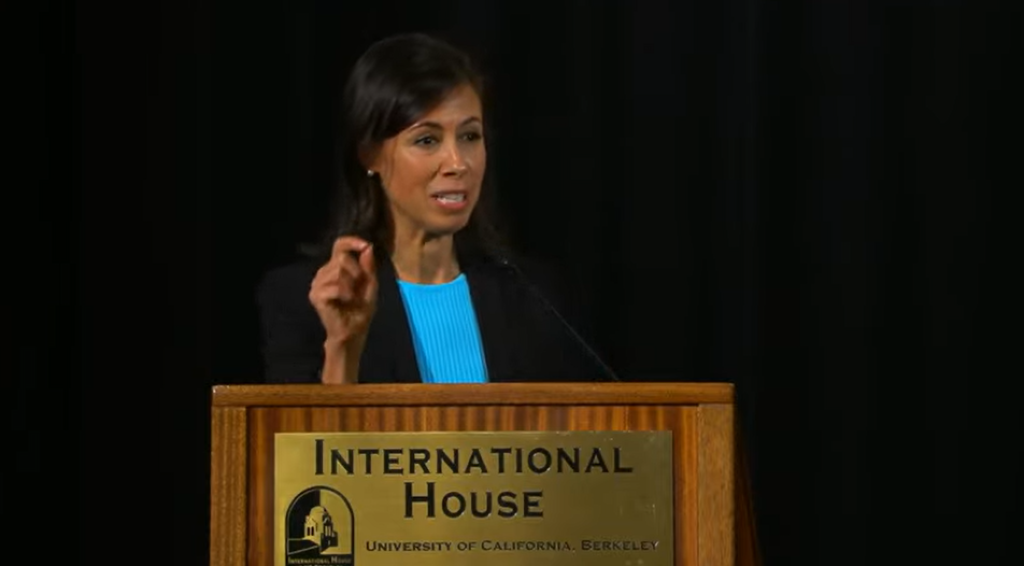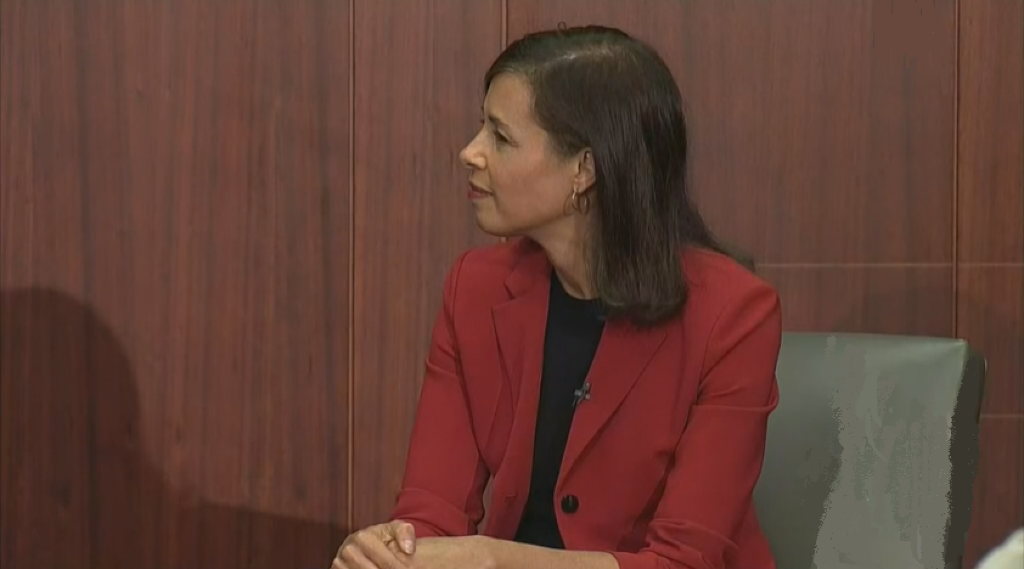Rosenworcel: Supreme Court Took Away FCC's 'Thumb on the Scale'
Court made it 'challenging for a lot of different regulatory actors.'
Ted Hearn

Sept. 29, 2024 – A recent Supreme Court decision will make it harder for federal regulatory agencies to defend their rules in federal court, FCC Chairwoman Jessica Rosenworcel said Friday in California.
"The Supreme Court has recently stepped back from the Chevron deference which long gave ... put a thumb on the scale in favor of regulatory interpretations on ambiguous laws. That is no longer the case," she said, following a speech at the Berkeley Law AI Institute on the topic of artificial intelligence.
In June, the high court handed down Loper Bright Enterprises v. Raimondo, which overturned the judicial canon known as the Chevron Doctrine that required courts to defer to the FCC's reasonable interpretations of ambiguous laws. Now, courts are required to determine the best reading of the law.
"I think that's going to be challenging for a lot of different regulatory actors going forward in Washington," said Rosenworcel, who took a few questions after her formal remarks.
Chairwoman Rosenworcel on AI at Berkeley Law AI Institute
 Broadband BreakfastJericho Casper
Broadband BreakfastJericho Casper
According to a 2017 study, federal agencies had a 77.4% win rate under Chevron deference.
A day before Rosenworcel’s comments, Justice Brett M. Kavanaugh told a law school audience in Washington that the outcome in Loper Bright for which he voted should be viewed as "a course correction" in defense of the constitution's separation of powers. He also said not to "over read Loper Bright," adding that federal courts should not "unduly hinder" agencies that have been "granted broad authorization" by Congress.
Rosenworcel suggested certain areas in which the FCC operated were less susceptible to judicial reversal than other areas she did not name.
"What I do know about the FCC is that a lot of our decisions are often technical. They involve not just lawyers, but economists and engineers, and we make a really, really strong effort to make sure we are making decisions based on the engineering and the economics and the basis of the words in the statute," she said.









Member discussion